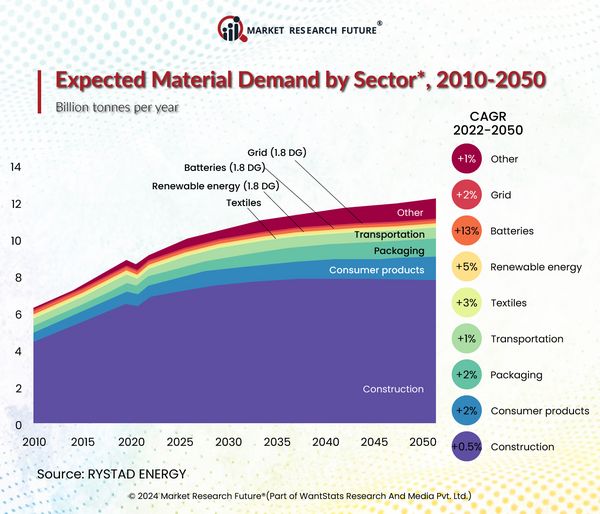World Finds it Difficult to Meet Energy Demands by 2050
The world's population growth will experience a significant increase by the beginning of 2024. The exponential growth of the population demands more resources. A survey in 2024 indicates that increasing demands for resources can severely impact the economic condition of nations. The developed economies are expanding the nation’s energy sector to meet consumer demand globally. The energy sector will experience significant power demands due to increased consumption from data centers in 2024.
Global energy demands are expected to rise 30 percent in the coming years. Earlier, in 2022, the global energy demands were at 9 billion. However, experts claim that the energy demand will reach 12 billion by 2050. Further, the construction segment continues to dominate the energy sector's demand. The demand for raw materials like wood, cement, iron, and steel drives it.
Further, the growth energy transition generates demand for lithium, copper, and aluminum materials. Clean energy transition proves to be an essential factor in fueling energy demands. Additionally, increasing dependency on artificial intelligence (AI) causes power demands. This is due to the need for high computing power in data centers under the influence of artificial intelligence. AI leads to increasing electricity consumption in data centers. Hence, it may hinder the progress of green transformation globally. The nations worldwide have pledged to lower carbon emissions by the end of 2050. Therefore, the net zero emission targets with renewables and other alternatives can potentially reduce carbon footprints in the energy sector.
The oil and gas industry suffers from major economic downturns due to specific geopolitical conflicts. Further, the clean energy transition drives consumers towards greener fuel choices. Electric vehicles are a significant alternative to conventional fuel-run vehicles. Eventually, the demand for electric vehicles may increase investments and production of batteries in the market. It increases the reliability of renewables. Therefore, countries are increasingly dependent on renewables, like wind and solar. This will lead to significant expansion in the renewable energy production sector. However, another issue of grids and storage for renewables emerges as the biggest concern. The setting up grids, reconstructing old grids, and expanding storage capacity can result in positive outputs globally. Therefore, it is difficult to claim that the world may run out of energy sooner by the end of 2050.
Expected Material Demand By Sector, 2010-2050






